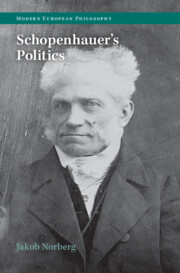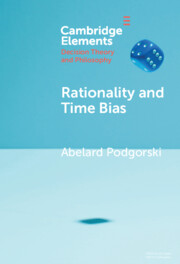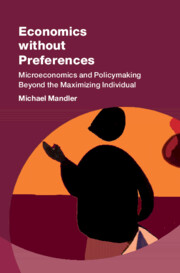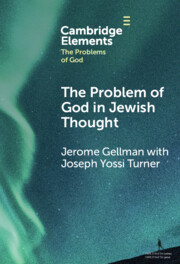215 results
8 - Are Moral Judgments Rational?
- from Part II - Thinking and Feeling
-
-
- Book:
- The Cambridge Handbook of Moral Psychology
- Published online:
- 20 February 2025
- Print publication:
- 27 February 2025, pp 172-197
-
- Chapter
- Export citation
Standard rationality versus inclusive rationality: a critical assessment
-
- Journal:
- Behavioural Public Policy , First View
- Published online by Cambridge University Press:
- 03 February 2025, pp. 1-15
-
- Article
-
- You have access
- Open access
- HTML
- Export citation
Introduction
-
- Book:
- Schopenhauer's Politics
- Published online:
- 09 January 2025
- Print publication:
- 23 January 2025, pp 1-22
-
- Chapter
-
- You have access
- Open access
- HTML
- Export citation
2 - The Metaethics of Worship
- from Part I - Two Introductions
-
-
- Book:
- The Philosophy of Worship
- Published online:
- 09 January 2025
- Print publication:
- 23 January 2025, pp 16-28
-
- Chapter
- Export citation
Conclusion
-
- Book:
- Schopenhauer's Politics
- Published online:
- 09 January 2025
- Print publication:
- 23 January 2025, pp 244-255
-
- Chapter
-
- You have access
- Open access
- HTML
- Export citation
Should we respond correctly to our reasons?
-
- Journal:
- Episteme , First View
- Published online by Cambridge University Press:
- 21 January 2025, pp. 1-22
-
- Article
-
- You have access
- Open access
- HTML
- Export citation
11 - Production and the Enforcement of Rationality
- from Part II - Economic Analysis and Policy Without Preferences
-
- Book:
- Economics without Preferences
- Published online:
- 02 January 2025
- Print publication:
- 16 January 2025, pp 213-222
-
- Chapter
- Export citation
1 - Introduction: Marginal Utility Matters
-
- Book:
- Economics without Preferences
- Published online:
- 02 January 2025
- Print publication:
- 16 January 2025, pp 1-26
-
- Chapter
-
- You have access
- Export citation
12 - The Political Disempowerment of the Modern Democratic Citizen
- from Part IV - The Erosion of the Epistemological Constitution of Modern Democracy
-
- Book:
- Can Democracy Recover?
- Published online:
- 02 January 2025
- Print publication:
- 16 January 2025, pp 129-133
-
- Chapter
- Export citation
The Rationality of Emotions Across Time
-
- Journal:
- Dialogue: Canadian Philosophical Review / Revue canadienne de philosophie , First View
- Published online by Cambridge University Press:
- 14 January 2025, pp. 1-18
-
- Article
-
- You have access
- Open access
- HTML
- Export citation

Schopenhauer's Politics
-
- Published online:
- 09 January 2025
- Print publication:
- 23 January 2025
-
- Book
-
- You have access
- Open access
- Export citation

Rationality and Time Bias
-
- Published online:
- 09 January 2025
- Print publication:
- 16 January 2025
-
- Element
- Export citation

Economics without Preferences
- Microeconomics and Policymaking Beyond the Maximizing Individual
-
- Published online:
- 02 January 2025
- Print publication:
- 16 January 2025
Inquiring About the Future: The Rationality of Hopefulness
-
- Journal:
- Canadian Journal of Philosophy , FirstView
- Published online by Cambridge University Press:
- 27 December 2024, pp. 1-11
-
- Article
-
- You have access
- HTML
- Export citation

God and the Problem of Epistemic Defeaters
-
- Published online:
- 05 December 2024
- Print publication:
- 02 January 2025
-
- Element
- Export citation
6 - Separation of Powers and Federalism
- from Part II - Symmetry Applied
-
- Book:
- Constitutional Symmetry
- Published online:
- 14 November 2024
- Print publication:
- 21 November 2024, pp 145-178
-
- Chapter
- Export citation
Chapter 3 - Gregorios Antiochos
-
- Book:
- Masculinity in Byzantium, c. 1000–1200
- Published online:
- 07 November 2024
- Print publication:
- 21 November 2024, pp 73-102
-
- Chapter
- Export citation
Learning-by-doing: an insight worthy of the pantheon and how to do it in teams
-
- Journal:
- Behavioural Public Policy , First View
- Published online by Cambridge University Press:
- 15 November 2024, pp. 1-15
-
- Article
-
- You have access
- Open access
- HTML
- Export citation
Why Kahneman matters
-
- Journal:
- Behavioural Public Policy / Volume 9 / Issue 2 / April 2025
- Published online by Cambridge University Press:
- 31 October 2024, pp. 311-318
-
- Article
-
- You have access
- Open access
- HTML
- Export citation
The economics of cognitive institutions: mapping debates, looking ahead
-
- Journal:
- Journal of Institutional Economics / Volume 20 / 2024
- Published online by Cambridge University Press:
- 13 September 2024, e28
-
- Article
-
- You have access
- HTML
- Export citation

